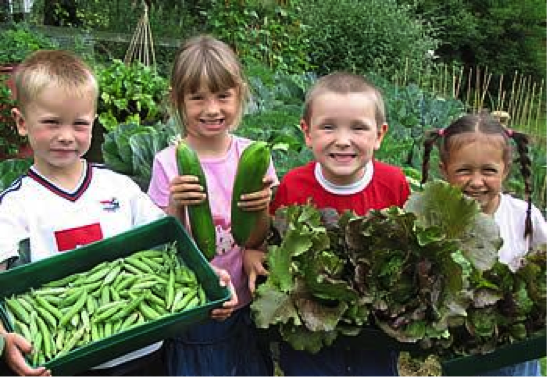Food For Life Partnership
May 28, 2013
Contributor: Bristol
Workshop:
Governance, synergies and local systems / Final consumers – Youngsters
Holistic approach to sustainable food in schools that provides multiple benefits for school staff and families of school children

General disengagement with food in UK has led to a range of problems including health with huge increase in childhood obesity and other diet related illness, loss of food skills, both growing food and preparing. Industrial farming practices have led to massive biodiversity losses.
A report on the project illustrates multi benefits some of which were not anticipated but were a consequence of the ‘whole school’ approach, ranging from reduction in staff absences to healthier eating reported by the school children’s families
Benefits (environmental/social/economical…)
The programme awards Gold Silver and Bronze for schools who meet the criteria set at each level. The increasing levels of sustainability include a meat free menu one day per week. Children and their families eat more healthy food. Performance improves both of the school overall and the children individually
Discuss pro and contra…
The programme is demanding and resource intensive to set up initially and this means engagement can be low in some places including Bristol. Yet those schools progressing through this phase and building the programme into their everyday activities find that it’s self perpetuating, continuing to bring in much of value at no further cost.
Funding for the programme is due to continue in the future but details have yet to be confirmed
A programme such as this that is based on a holistic approach can be expensive to operate yet the benefits are substantial and cost effective, saving money in the long term.
Do similar schemes exist elsewhere and is there a clear evidence base of successful outcomes?